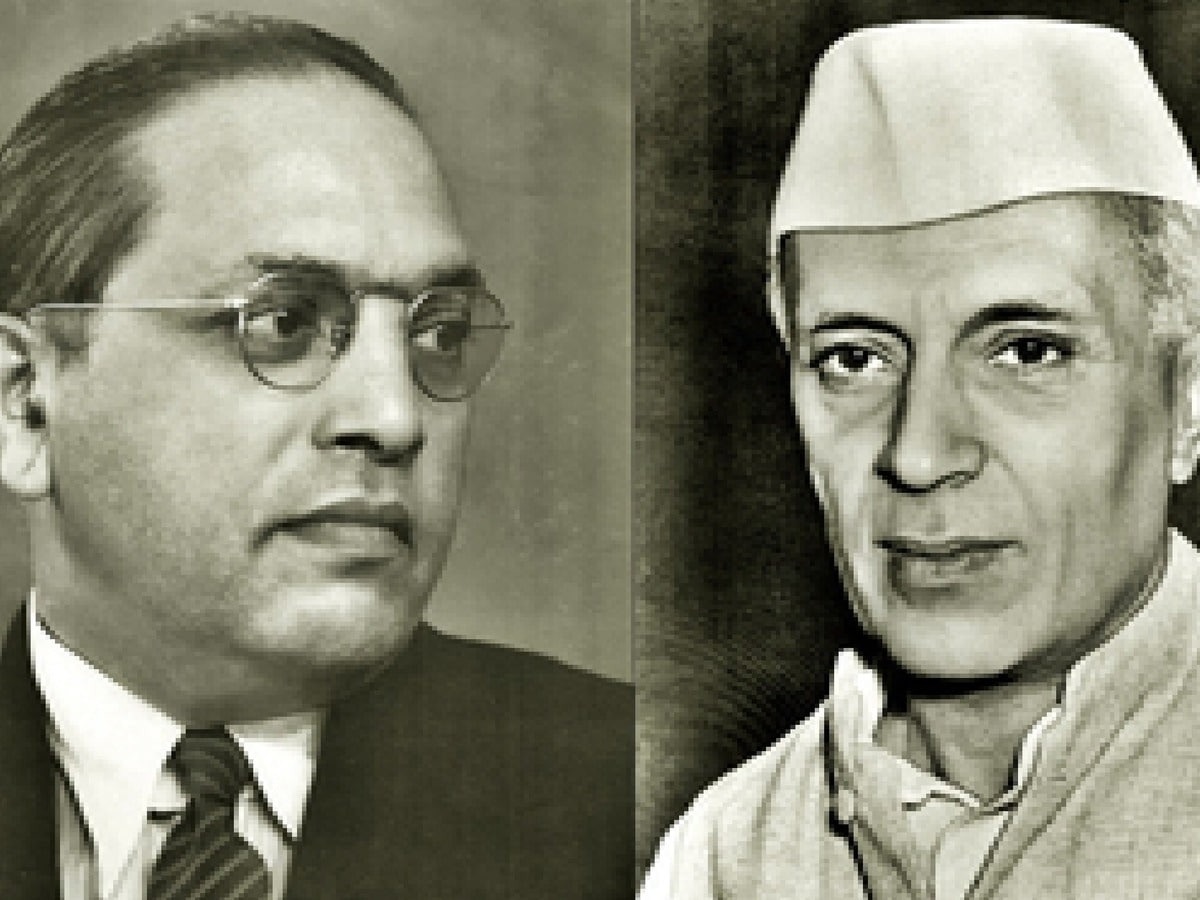Dr. Bhimrao Ambedkar, the architect of the Constitution and an icon of social justice, is at the center of Indian politics these days. From Parliament to the streets, the ruling BJP and the opposition Congress are at loggerheads over his honour. While the BJP is accusing the Congress of insulting Ambedkar, the Congress and other opposition parties have demanded the resignation of Union Home Minister Amit Shah, accusing him of insulting Ambedkar in his speech in Parliament.
Amidst this political controversy, the discussion has again intensified on the relationship between Dr. Ambedkar and India’s first Prime Minister Pandit Jawaharlal Nehru and the reasons for his resignation from the Nehru cabinet.
Ambedkar’s tenure in Nehru cabinet
Dr. Bhimrao Ambedkar served as Law Minister in Pandit Nehru’s government for 4 years, 1 month, and 24 days. However, on 27 September 1951, he resigned from the post of minister. His decision is considered to be the result of differences between him and the Nehru government on the Hindu Code Bill.
The letter related to Dr. Ambedkar’s resignation is not publicly available, but various books and reports have claimed that he had mentioned in detail the reasons behind his resignation.
Main reasons for resignation
1. Difference on Hindu Code Bill
Ambedkar considered the Hindu Code Bill as an important step in social reforms. However, there were differences of opinion within the Nehru government over the bill, and Ambedkar was dissatisfied with the slow progress towards it.
2. Government neglect and disrespect
According to reports, Ambedkar wrote in his letter that although he was given a place in the cabinet, he was not given responsibilities commensurate with his academic and professional skills. He was an expert in economics, but he was not given the responsibility of the Finance Ministry.
3. To be excluded from main committees
Ambedkar mentioned in his letter that he was not included in the main committees of the cabinet, such as the Foreign Affairs Committee, Defense Committee, and Economic Affairs Committee. He described this as an example of biased attitude towards him.
4. Ignoring backward classes and scheduled castes
Ambedkar accused the government of neglectful behavior towards the Scheduled Castes and Backward Classes. He also expressed displeasure over not appointing a commission for backward classes.
5. Disagreement on foreign policy
Dr. Ambedkar also raised questions on the foreign policy of the Nehru government. His opinion on the issues of Kashmir and East Pakistan differed from that of the government.
 look news india
look news india

